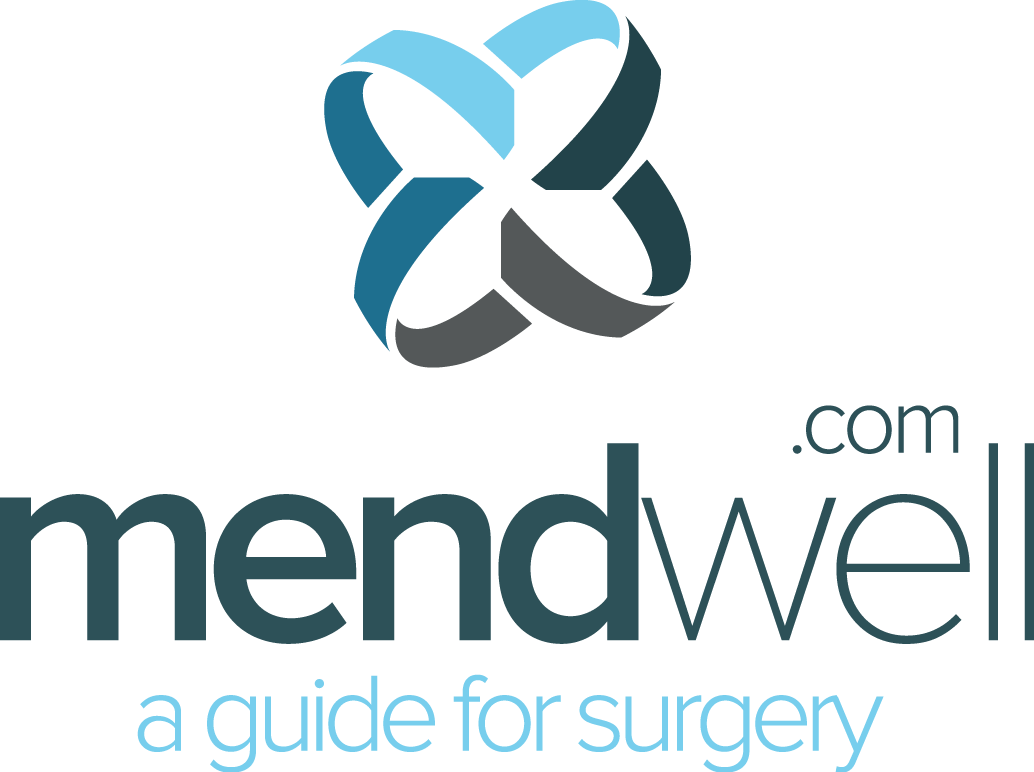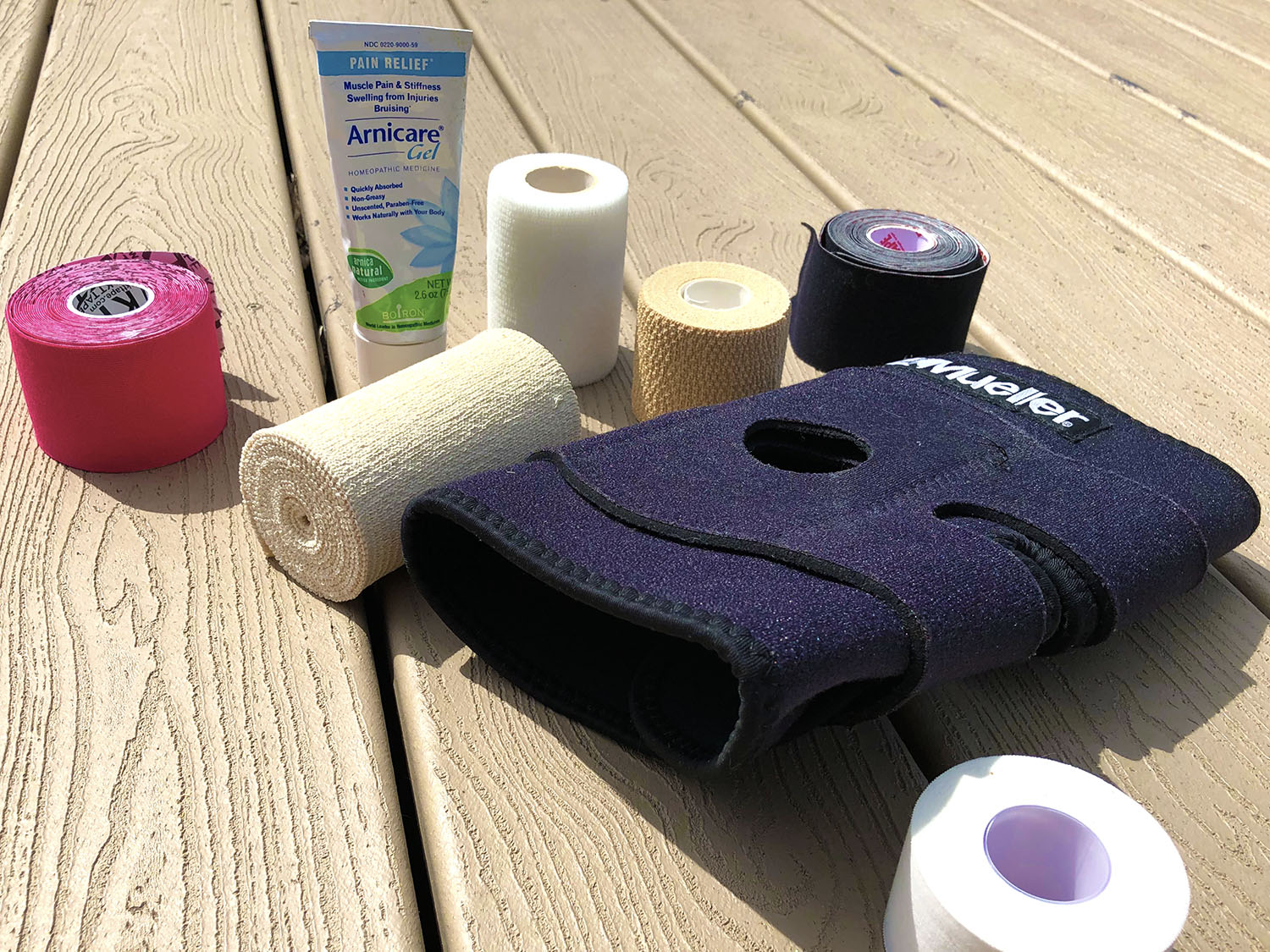Q & A with an MCL Replacement Patient
If you’re getting ready to have surgery for the first time, you might find yourself wondering what surgery is like and—more importantly—how you can improve your surgery experience. To help you on your quest for a seamless, stress-free procedure, we’re sitting down today with an MCL-replacement patient to learn more about her specific surgery experience and what steps she would take if she had it to do all over again. Read on for some serious insight.
Pre-Op
What procedure did you have done?
I had my MCL (medial collateral ligament) replaced. Your MCL is the ligament that runs down the inside of your knee toward your shinbone. They replaced it with a cadaver ligament, held in place by a screw and a bone-plug. They also did some knee scoping (using a camera to look into my knee joint and then cleaning it out) as well.
What did your doctor tell you to do to prepare for surgery?
Her biggest concern was making sure I stopped taking birth control pills. I have a sibling who suffered two strokes before the age of 30—and she had a patient on birth control a few years prior who suffered a clot during surgery and a stroke as a result, so I just remember the thing she kept hammering on was to be sure I didn’t take my birth control pill for a few weeks beforehand. Other than that, I was instructed to not eat or drink after midnight before my procedure—but that’s about it.
What was the most challenging part of your surgery prep?
Looking back, I think the most challenging part was simply not being prepared enough (although I didn’t know it at the time). I’d had a few minor procedures at that point, but nothing as major as a ligament replacement, so I wasn’t physically or emotionally prepared for just how difficult recovery would be.
How did you feel emotionally about the surgery?
I didn’t really allow myself to think too much about it. I have a father who’s had brain-tumor surgery, and I remember how much of a physical and emotional toll that took on him. I was terrified that I would be the same way during my recovery—so I avoided thinking about it too much. Any time I did allow myself to think about going under anesthesia, I was honestly pretty terrified.
Did you get a second opinion before having your procedure.
I did not. I’d been going to physical therapy to correct the issue for a few years at that point, and, after physical therapy wasn’t able to strengthen my MCL and the problems got worse, I was sent to an orthopedic surgeon who said I needed to have the ligament replaced. I did not end up seeing a second orthopedic doctor or surgeon—however, my surgeon was regarded as one of the best in the area, so I felt comfortable with her opinion.
Did you have to fast from all food and drinks after midnight before your surgery? If so, was that difficult for you?
I did—however, my procedure was scheduled super early in the morning. I had to be there around 6 a.m., and I typically don’t eat between the hours of midnight and 6 a.m. anyways, so I didn’t feel starved or anything like that. However, I do think going into surgery on an empty stomach contributed to how terrible I felt when I woke up.
Waking Up
How long was your procedure?
I believe I was under anesthesia for 2-3 hours.
Did you experience any side effects?
Other than the nausea and vomiting, I just felt incredibly groggy. Getting in the car to go home felt like the biggest task ever.
How did you feel when you woke up from your surgery?
Waking up was, by far, the worst part of my surgery experience. I immediately began vomiting. The nurses were in the middle of a shift-change, so, while my first nurse was amazing and ensured I had a beside bucket, if you will, I remember the second nurse wasn’t quite as helpful, which meant I was getting up on crutches to go to the restroom to vomit. I just remember being incredibly nauseous, not knowing if that was normal, and, aside from my husband, not really having anyone around who was helping me or letting me know if what I was experiencing was OK.
Recovery
What was the most challenging part of your surgery recovery?
Being physically limited was extremely challenging for me. No one really prepares you for the toll that can take on you mentally and emotionally. As an active and independent person, I was extremely ill-prepared for just how hard not being mobile would be.
The other major issue for me was pain management. I’d been given pain meds (a generic form of Percocet) to use once the anesthesia wore off. I ended up getting incredibly sick from the pain meds and, at one point, had a seizure at home due to the meds—which, as you can imagine, wasn’t ideal on top of the physical recovery I was already going through. (During the seizure, I lost both of my crutches, fell onto our hardwood floor and twisted my knee pretty badly.) I stopped taking the pain meds but was in an incredible amount of pain. I didn’t really have any other options that I knew of, and I didn’t want to take heavy pain meds again after the seizure, so I kind of just had to mind-over-matter my way through the pain for a while there.
What everyday activities were affected by your recovery?
Oh, a better question would probably be what activities weren’t affected. Not being able to use one leg, especially my dominant one, was tough. I couldn’t drive, could hardly get off the couch, etc. You can also only be on crutches for so long before you get bad bruises under your arms (as anyone who’s been on crutches knows). So, all around, pretty much every part of my day-to-day routine was difficult. My lovely husband would bring me a water bottle and a “spit bowl” to the couch just so I could brush my teeth without having to get up. Ha. Overall, every single movement was difficult for those first few weeks.
Years later, I still have about 20% of my right leg that’s completely numb to touch (I was told it was from too-tight tourniquet placement)—so, as silly as it may seem—even shaving my leg all of these years later I would say is still a lingering side-effect of that procedure. I also get sharp pain in the area where my bone plug is, which probably won’t go away unless I have another procedure to correct that. So this surgery has been the gift that keeps on giving!
Enhanced Recovery After Surgery
Are you familiar with enhanced recovery protocols?
I was not at the time; however I’ve since learned about ERAS protocols.
If you had it to do over again, what would you have done differently?
I would have talked to my doctor about drinking a carbohydrate beverage before anesthesia. I would have better prepared my house (being immobile and having the items I needed spread across different rooms was a pain). I also would definitely make better nutrition choices in those important weeks leading up to surgery. Lastly, I probably would have just taken a more proactive approach to my procedure overall—whether that means requesting more literature from my surgeon, doing more research on ERAS®, asking her to be more clear about what I should expect during recovery, or even just getting a second opinion.
Do you think that enhanced recovery protocols would have helped you to have a better surgery experience? If so, how?
Absolutely—to me, there’s no question ERAS® protocols would have made my surgery experience so much smoother. As I mentioned, I was incredibly unprepared for my procedure and the lengthy recovery process. Had I known, for example, that having a carbohydrate beverage before anesthesia reduces your risk of post-op nausea and vomiting, I could have likely avoided those terrible few hours I spent in the hospital getting sick after waking up.
I also didn’t realize how important it is to be healthy when you go under the knife—and how much that can affect your recovery. While I was active and in-shape, I was also at that age where you can live off of junk food and not gain weight—so I’m sure I was eating tacos and Thai and fast-food in the weeks and days leading up to my procedure. Since I’ve learned about ERAS, I often wonder if a healthier diet and good nutrition plan before my procedure would have made a major difference as well—I have to assume it would have.
That’s it for this patient’s surgery story! Want to learn even more about enhancing your surgery experience? Browse the rest of our blog for empowering pre-op information, helpful nutrition advice, and pro medical tips for ensuring your procedure—and recovery—are the best they can be.
And for more surgery stories, click here!


